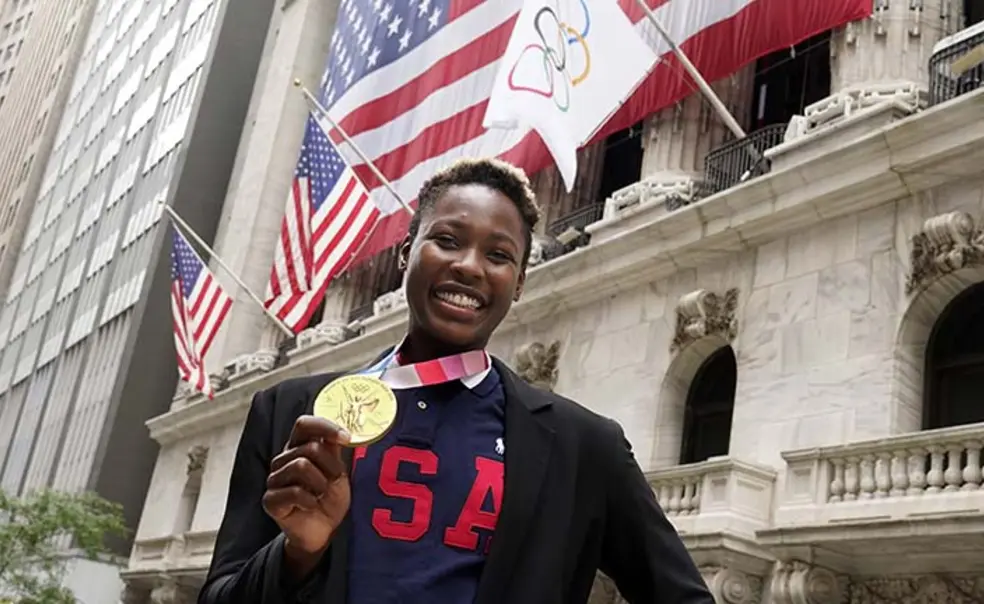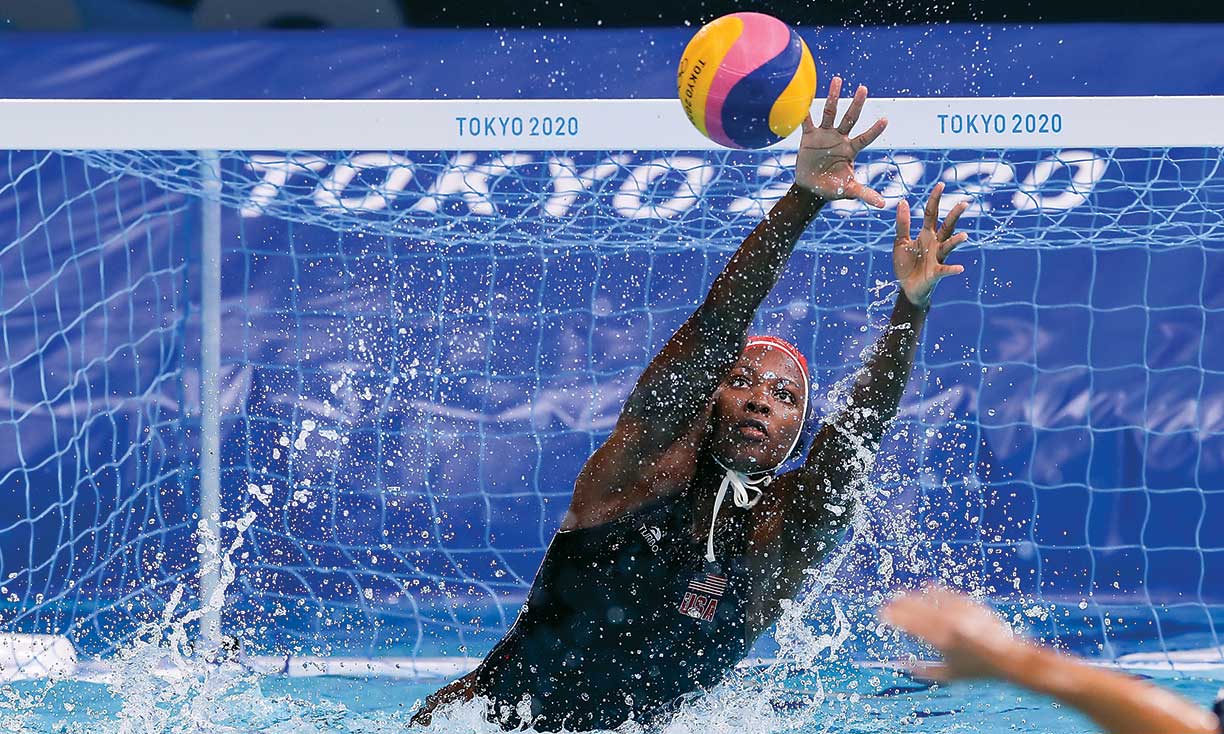Tiger Olympians Take Home Pride, Medals, and More
Fifteen alumni and three students made Princeton’s Olympics contingent the largest yet
Ashleigh Johnson ’17 and her gold-medal-winning United States women’s water polo team were welcomed home from Tokyo with cheers and hugs at Los Angeles International Airport. Five hours later, Johnson was back in the air, heading east to ring the opening bell at the New York Stock Exchange, make a few TV appearances, and catch up with friends. The whirlwind tour was “a little bit glamorous,” she joked, but it had a serious side, too.
Johnson, the first Black woman to play for the U.S. Olympic water polo team, has been using her celebrity to encourage diversity in water polo and raise awareness of how aquatic sports historically excluded Black people. She told PAW she aims to inspire “the next person to get to where I am — and push past where I am.”
“I’ve had such positive experiences in water polo,” Johnson said. “I want to help that opportunity become more evenly distributed around the country and around the world.”
Johnson made a lasting impression in Tokyo, saving an Olympic-record 80 shots in seven games and helping the U.S. rout Spain 14-5 in the gold-medal match. Away from the pool, she crossed paths with some of her Princeton contemporaries and one of her heroes, rower Gevvie Stone ’07, who has reached the Olympics three times while pursuing a career as a physician. “Princeton taught us to dream past athletics while pursuing athletics at a really high level,” Johnson said.
Johnson and Stone were among 18 Princetonians — 15 alumni and three students — who competed in this summer’s Olympics, the University’s largest contingent in a history that stretches back to the first modern games in Athens in 1896.
A week before Johnson won gold, two of Princeton’s eight Olympic rowers also earned medals. Denmark’s Fred Vystavel ’16 and partner Joachim Sutton captured bronze in the coxless men’s pair. Tom George ’18 of Great Britain also won bronze, in the men’s eight final — a race that included fellow alumni Nick Mead ’17 of the United States and Tim Masters ’15 of Australia.
Vystavel, in an interview with the website Row2K, credited the American collegiate rowing experience with helping him and Sutton to understand team dynamics. (Sutton rowed at the University of California, Berkeley.) The pair “realized that we’re good at different things, and we have some weaknesses, but together we’ve come out stronger as a result,” Vystavel said.
Stone, a silver medalist at the 2016 Rio de Janeiro Olympics, and partner Kristi Wagner represented the United States in the women’s double sculls, placing fifth. Two other rowing alumnae — Hannah Scott ’21 of Great Britain’s quadruple sculls and Claire Collins ’19 of the U.S. four — won the B finals of their events to place seventh overall. The U.S. rowing team was shut out of the medals for the first time since its 1980 boycott of the Moscow Olympics.
The track and field competition saw a pair of alumnae reach their event finals. Great Britain’s Lizzie Bird ’17 set a national record in the 3,000-meter steeplechase, finishing the race in 9:19.68 to place ninth overall. Julia Ratcliffe ’16, a hammer thrower for New Zealand, also finished ninth with a toss of 72.69 meters.
In fencing, undergraduate Mohamed Hamza ’23 of Egypt had Princeton’s best individual result, reaching the quarterfinals of the men’s foil competition. Kat Holmes ’17 and Anna Van Brummen ’17 helped the United States place fifth in the women’s epee team event, while Eliza Stone ’13 and the U.S. women’s team finished sixth in the saber.











No responses yet